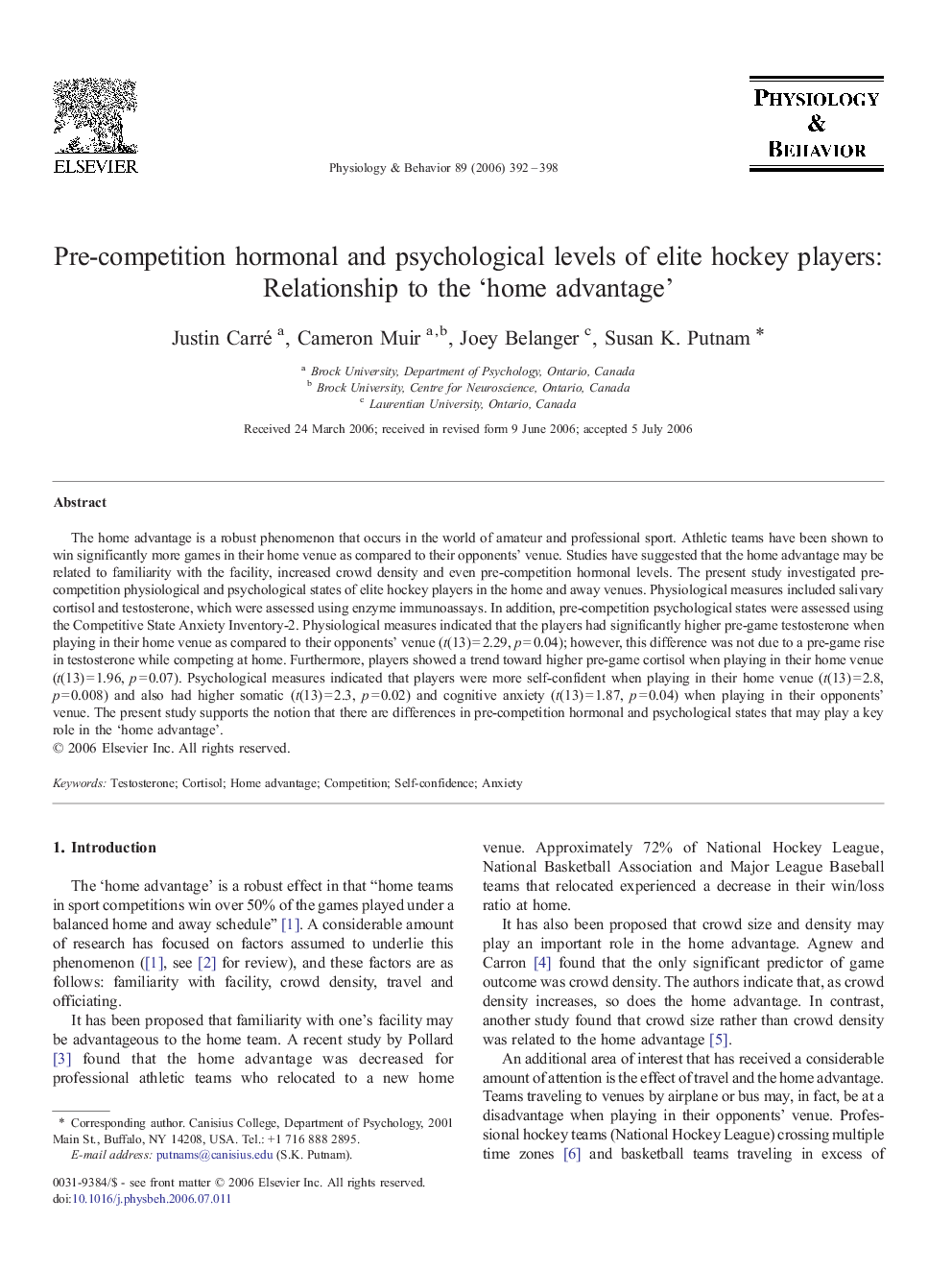| Article ID | Journal | Published Year | Pages | File Type |
|---|---|---|---|---|
| 2846581 | Physiology & Behavior | 2006 | 7 Pages |
The home advantage is a robust phenomenon that occurs in the world of amateur and professional sport. Athletic teams have been shown to win significantly more games in their home venue as compared to their opponents' venue. Studies have suggested that the home advantage may be related to familiarity with the facility, increased crowd density and even pre-competition hormonal levels. The present study investigated pre-competition physiological and psychological states of elite hockey players in the home and away venues. Physiological measures included salivary cortisol and testosterone, which were assessed using enzyme immunoassays. In addition, pre-competition psychological states were assessed using the Competitive State Anxiety Inventory-2. Physiological measures indicated that the players had significantly higher pre-game testosterone when playing in their home venue as compared to their opponents' venue (t(13) = 2.29, p = 0.04); however, this difference was not due to a pre-game rise in testosterone while competing at home. Furthermore, players showed a trend toward higher pre-game cortisol when playing in their home venue (t(13) = 1.96, p = 0.07). Psychological measures indicated that players were more self-confident when playing in their home venue (t(13) = 2.8, p = 0.008) and also had higher somatic (t(13) = 2.3, p = 0.02) and cognitive anxiety (t(13) = 1.87, p = 0.04) when playing in their opponents' venue. The present study supports the notion that there are differences in pre-competition hormonal and psychological states that may play a key role in the ‘home advantage’.
